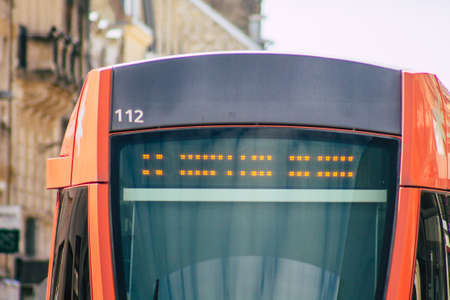Carpooling and Ride-Sharing: A British Perspective
The British motoring scene has always been steeped in tradition, from the iconic double-decker buses to the classic image of a Morris Minor ambling down a country lane. Yet, in recent years, a new chapter is being written as carpooling and ride-sharing become increasingly popular across the UK. This shift is not just about convenience or saving a few quid on petrol; it reflects a deeper transformation in how Britons approach travel, community, and sustainability. As more drivers embrace platforms like BlaBlaCar or lift-sharing schemes at workplaces, the established culture—rooted in individual car ownership and weekend tinkering under the bonnet—is evolving. The question now facing many British motorists is how to balance cherished traditions with these modern trends. Whether you’re a die-hard classic car enthusiast or a city commuter looking for cost-effective options, understanding this change is key to navigating the roads ahead.
2. A Brief Journey: From Classic Rovers to Modern App-based Rides
There’s something undeniably evocative about the sight of a classic British Rover or a lovingly maintained Morris Minor gliding down a leafy country lane. For decades, these icons of British motoring culture were more than just vehicles—they represented independence, pride, and the uniquely British love affair with the open road. Yet as we glance in the rear-view mirror, it’s clear that times are changing. The rise of carpooling and ride-sharing apps is not only transforming how we travel but also subtly reshaping our communities and sense of belonging.
The nostalgia for those golden motoring days is palpable among enthusiasts. Sunday mornings spent tinkering beneath the bonnet, or the camaraderie found at local classic car meets—these are traditions that have stitched communities together for generations. However, with the advent of digital platforms like BlaBlaCar, Liftshare, and Uber, new forms of mobility are emerging, prioritising convenience and efficiency over ownership and heritage.
| Era | Typical Motorist Experience | Community Impact |
|---|---|---|
| Classic Era (1950s-1980s) | Ownership of iconic cars; DIY maintenance; regular social gatherings | Strong local ties; pride in craftsmanship; shared motoring identity |
| Modern App-based Era (2010s-present) | On-demand rides via smartphones; shared journeys with strangers; minimal vehicle upkeep | Broader but less personal networks; focus on sustainability and cost-saving; evolving sense of community |
The shift isn’t just technological—it’s cultural. Where once the purr of an Austin Healey was a familiar sound on suburban streets, today you’re just as likely to see neighbours sharing a lift arranged moments before through an app. While some lament the fading rituals of British motoring life, others embrace the inclusivity and flexibility that ride-sharing brings. In many ways, this evolution mirrors broader societal changes: from tight-knit local groups to interconnected networks stretching across towns and cities.
As we move forward, British motorists find themselves balancing a fondness for tradition with an openness to innovation. Whether you’re polishing chrome on a rainy Saturday or hitching a ride to work via your mobile, each journey reflects both where we’ve come from and where we’re headed. Ultimately, these shifting trends invite us all to reconsider what it means to be part of Britain’s rich motoring tapestry.

3. Benefits and Challenges for Motorists
As carpooling and ride-sharing become more commonplace across the UK, British motorists find themselves at a crossroads—torn between the allure of modern convenience and the cherished independence of traditional motoring. Let’s weigh up the key benefits and challenges that this shift brings to everyday drivers.
Cost Savings: Keeping More in Your Wallet
One of the most obvious advantages is financial. With fuel prices ever climbing and insurance premiums showing no sign of relenting, sharing journeys means splitting costs. For many, this can translate into significant monthly savings. In some cases, it can even make owning a car more feasible for those otherwise priced out.
| Aspect | Carpooling & Ride-Sharing | Traditional Motoring |
|---|---|---|
| Fuel Costs | Shared among passengers | Borne solely by driver |
| Parking Fees | Often split or reduced via park-and-ride | Pays full rate individually |
| Wear & Tear | Reduced per person, but increased vehicle use overall | Entire burden on owner’s vehicle |
Reduced Congestion: A Smoother Commute?
The dream of fewer cars clogging up the M25 or winding through city centres is one that appeals to many. Carpooling initiatives have been proven to ease traffic flow, cut down on emissions, and even make urban parking less of a daily headache. Local councils are increasingly encouraging these schemes, offering incentives like priority lanes or reduced tolls.
The Impact on Individuality and Privacy: The British Motoring Spirit Tested
But there’s another side to the coin. For generations, the motorcar has stood as a symbol of British individuality—a private sanctuary on wheels and a badge of personal identity. Sharing your commute means giving up some of that treasured privacy. From impromptu singalongs to confidential phone calls, these moments must now be navigated with company aboard.
The Balancing Act
| Benefit/Challenge | Description | Impact on Motorist Experience |
|---|---|---|
| Cost Savings | Lower expenses on fuel and maintenance when rides are shared | Positive; more money for essentials or hobbies |
| Reduced Congestion & Pollution | Fewer cars lead to smoother journeys and cleaner air | Positive; less stress, healthier cities |
| Loss of Privacy & Flexibility | Sacrificing solitude and spontaneous travel plans for scheduled lifts | Negative; less control over personal time and space |
| Cultural Shift in Car Ownership Values | The move from ownership pride to utility-first thinking can feel jarring for enthusiasts and old hands alike | Mixed; nostalgia may clash with practical benefits |
The rise of carpooling and ride-sharing certainly offers much-needed solutions to modern motoring woes—but it also asks British motorists to re-examine what driving really means to them in an era where community might just trump individuality.
4. The Impact on British Roads and Environment
As carpooling and ride-sharing become increasingly woven into the fabric of British motoring, the effects on our roads and environment are both profound and worth a closer look. Gone are the days when every household had to rely on a solitary Ford Cortina or Morris Minor for their daily commute—today, sharing journeys is not just a matter of convenience, but also a nod to sustainability and community spirit.
Traffic Patterns: Easing the Congestion?
One of the most noticeable changes for motorists is the potential reduction in traffic congestion, particularly during rush hour on the M25 or heading into city centres like Manchester or Bristol. By consolidating journeys, fewer cars are required on the road, which means less queuing at roundabouts and more breathing space on our beloved A-roads. However, while urban areas may see clearer roads, rural lanes—those winding ribbons that evoke memories of classic Sunday drives—might experience increased use as more rideshare vehicles seek out shortcuts and alternative routes.
Emissions: Cleaner Air for Our High Streets
The environmental impact cannot be understated. With fewer vehicles idling in traffic jams or circling for parking spots, emissions of carbon dioxide and other pollutants are on a downward trend. For those nostalgic about a time when smog wasn’t part of London’s skyline, this shift offers real hope. Ride-sharing also encourages the adoption of newer, often more efficient vehicles compared to the ageing classics still lovingly kept by enthusiasts.
Environmental Benefits at a Glance
| Aspect | Traditional Motoring | Carpooling & Ride-Sharing |
|---|---|---|
| Cars per Household | 1-2 | Shared/Reduced Need |
| Urban Traffic Volume | High | Lowered |
| CO₂ Emissions (per capita) | Higher | Reduced |
| Country Lane Use | Mainly Local Drivers | Increased Through-Routes |
| Parking Pressure | Crowded Town Centres | Eased Demand |
The Preservation of Country Lanes: A Double-Edged Sword
Beneath the surface, there’s a tension between progress and preservation. While sharing rides can help protect our green spaces from new road developments, it may also put pressure on those picturesque country lanes we hold dear. Increased traffic could threaten verges lined with bluebells or startle grazing sheep—a far cry from the gentle hum of an Austin Healey gliding through on a quiet Sunday morning.
A Call for Balance
The challenge ahead is ensuring that as we embrace carpooling and ride-sharing, we do so with care for our motoring heritage and natural landscapes. Thoughtful planning—such as protecting vulnerable routes and encouraging eco-friendly vehicle choices—will be key if we’re to enjoy the best of both worlds: cleaner air in our cities and unspoilt tranquillity along Britain’s iconic backroads.
5. What This Means for Classic Car Enthusiasts
For those of us with a soft spot for classic British motors—be it an old MG, a stately Rover, or the ever-charming Morris Minor—the rise of ride-sharing and carpooling is something of a double-edged spanner. On one hand, these trends speak to a more sustainable, efficient future on the roads, but on the other, they pose questions about the place of cherished vintage vehicles in modern motoring life.
The Spirit of Preservation Versus Practicality
Classic car enthusiasts are often driven by nostalgia and a passion for hands-on maintenance. There’s a certain pride in keeping an Austin-Healey running through sheer willpower and careful restoration—a far cry from the plug-and-play approach favoured by contemporary ride-sharing fleets. While services like Uber and BlaBlaCar prioritise fuel efficiency and low emissions, our older motors, despite their character, don’t always meet today’s green standards. The following table outlines the primary contrasts:
| Ride-Sharing Vehicles | Classic British Cars | |
|---|---|---|
| Emissions Standards | Modern, low-emission or electric | Often pre-Euro emissions regulations |
| Maintenance | Service centre-based, minimal owner input | Owner-driven, hands-on tinkering |
| Cultural Value | Utility and convenience | Heritage and nostalgia |
Navigating New Road Rules
The push towards cleaner air in British cities brings congestion charges and ULEZ (Ultra Low Emission Zones), which can make taking a Triumph Spitfire out for a spin more complicated—and costly. For classic car lovers who treasure those weekend club runs or jaunts through the countryside, there’s growing pressure to balance enjoyment with environmental responsibility.
A Niche for the True Enthusiast
While it’s unlikely we’ll see fleets of E-Types signed up for everyday ride-sharing duties, there remains a strong community appetite for shared experiences—think classic car rallies, shows at Goodwood, or simply swapping stories over a pint at the local. Rather than competing with ride-sharing trends, classic car culture in Britain seems poised to become even more specialised: less about daily transport and more about celebrating automotive history and craftsmanship.
6. The Road Ahead: Integrating Tech with Tradition
Looking forward, the British motoring landscape stands at a fascinating crossroads—one where digital convenience and a cherished heritage can not only coexist but enrich each other. For many UK motorists, the joy of driving isn’t just about getting from A to B; it’s about the tactile feel of an old steering wheel, the purr of a classic engine, and the camaraderie found on winding country roads. Yet, there’s no denying the growing tide of carpooling apps and ride-sharing services, offering practical solutions to urban congestion and environmental concerns. So how can we blend these seemingly opposing worlds?
The Modern Motoring Mix
| Aspect | Traditional Motoring | Modern Mobility |
|---|---|---|
| Social Connection | Classic car clubs, Sunday meets | Ride-sharing communities, in-app chat functions |
| Environmental Impact | Older engines, less efficient fuel use | Reduced emissions via shared rides, EV integration |
| Ownership & Pride | Pride in restoration, personalisation | Flexibility—no need to own a car for daily travel |
A British Approach: Heritage Meets Innovation
The secret lies in embracing both sides. Imagine using a ride-sharing app for your weekday commute through London’s bustling streets but saving that lovingly restored Morris Minor or Triumph Spitfire for weekend escapes or vintage rallies. Carpooling doesn’t have to spell the end of classic motoring culture—in fact, it could ensure these vehicles remain special by reducing their day-to-day wear.
Practical Tips for Blending Old and New
- Join local car clubs that partner with tech-driven transport schemes—many classic car enthusiasts now organise group drives using online platforms.
- Consider participating in occasional carpooling to reduce costs and emissions, reserving your classic car for leisure.
- If you own a vintage vehicle, look into modern upgrades like navigation aids or eco-friendlier fuels without compromising authenticity.
The future of British motoring doesn’t demand we choose between nostalgia and progress. With thoughtful adaptation, drivers can cherish tradition while moving confidently toward a more connected and sustainable road ahead—a true blend of heritage and innovation.


